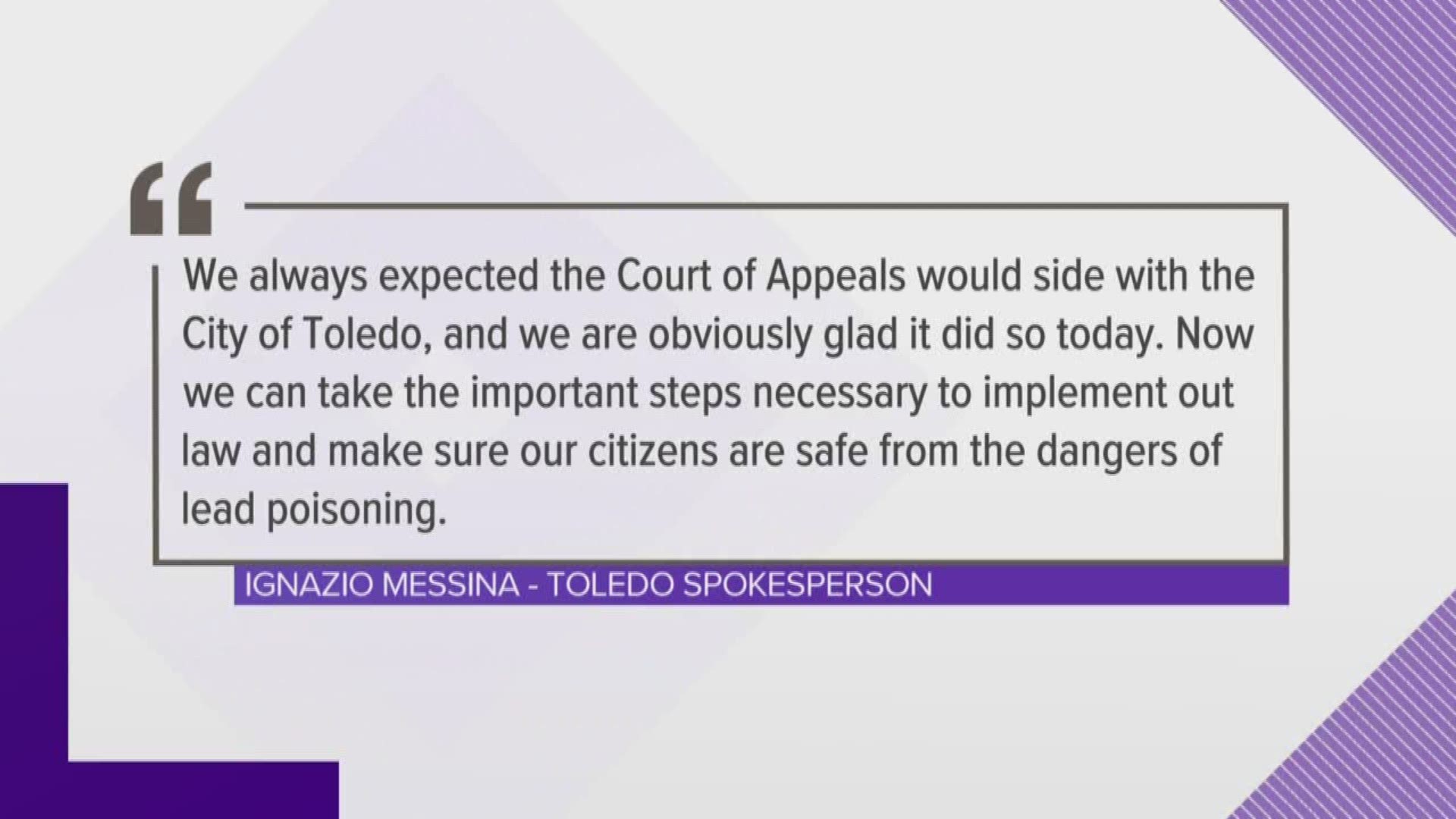TOLEDO, Ohio — The Ohio Court of Appeals reversed Tuesday the previous ruling of a lower court that deemed the lead ordinance approved by the Toledo City Council in 2017 unconstitutional, mostly siding with the city but for one issue.
The decision comes after council passed another lead ordinance in November. On that occasion, Mayor Wade Kapszukiewicz did sign the legislation piece into law but, shortly after, sent a letter addressed to council questioning it.
"My administration and the law department had asked you to wait to enact any amendments until the current case is resolved. While I still believe that was the more responsible approach to take, we now need to find a way to work together," Kapszukiewicz wrote back in November.
The "current case" the mayor mentioned was the legal proceedings of the constitutionality of the 2017 lead ordinance in the higher court.
In the letter, the mayor went on to raise many concerns, including issues that were being discussed in the court of appeals. Those included how the old and new ordinances would apply to rental properties and the role of the health department.
The higher court disagreed with Lucas County Common Pleas Court Judge Linda Jennings' ruling in those two regards and said, "a reasonable interpretation of the statute is that the legislative authority, on the city's behalf, may contract with the (health department) to perform services, like enforcing the lead ordinance."
But regarding the issue of rental properties, the court of appeals only partially sided with the city. The problem was in the definition of "owner" in the wording of the ordinance and if the semantics violated the Equal Protection Clause of the Ohio Constitution.
"The trial court further erred by concluding that the classifications of properties subject to the lead ordinance violate equal protection. The classifications are rationally related to the ordinance’s goal, which is to help prevent lead poisoning in the city," the court added. "However, the trial court did not err in finding that the definition of “owner” in the ordinance violates equal protection. This definition is so broad that it renders the ordinance’s classifications unworkable and irrational."
On Tuesday, City of Toledo Spokesperson Ignazio Messina released a statement saying the administration "always expected the court of appeals would side with the city of Toledo, and we are obviously glad it did so today."
Now we can take important steps necessary to implement out law and make sure our citizens are safe from the dangers of lead poisoning," he added.

